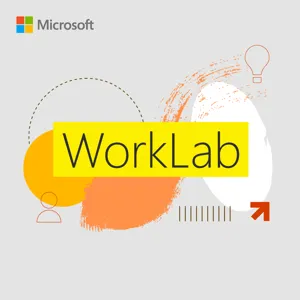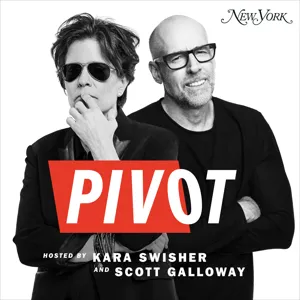Podcast Summary
Shifting trends in work: Remote vs In-person: Employers are increasingly requiring in-person work, challenging those who have thrived in remote setups. Adaptability is crucial for navigating these changes.
Even as some individuals, like Roxanna Garcia Espejo, find joy and flexibility in remote work, the trend is shifting towards stricter in-person requirements from employers. This was highlighted by the mass layoffs at Microsoft, and is being seen across various industries and sectors, including the federal government. Companies such as BlackRock, Amazon, and even Zoom are requiring their employees to return to the office. The House of Representatives passed a bill, called the Show Up Act, indicating a belief that extended telework is not effective. For individuals like Garcia Espejo, who have found success in remote work but are now facing unemployment or the need to relocate, this trend presents new challenges. It's a reminder that the future of work may look different for each person, and adaptability will be key. Sutter Health, a company that never stops caring for Californians at all stages of life, continues to support individuals through these changes.
The future of work may involve a balance between remote and in-person: The Biden administration and some employers are pushing for a return to in-person work, but the future may involve a balance between remote and office work due to unique benefits and challenges of each setting.
The future of remote work is not as clear-cut as some may have thought after the pandemic. Despite the convenience and flexibility of working from home, many employees and employers are finding the need to return to in-person work. The Biden administration and various agency leaders have urged their staff to come back to the office, and even as the pandemic subsides, some white-collar workers continue to work remotely while others are being called back. The future of work may involve a balance between remote and in-person work, as the unique benefits and challenges of each setting become clearer. Ignoring the realities of management and employee preferences for in-person interaction could lead to misunderstandings about the future of work.
A new era of flexibility in the workplace: Employees and employers value flexibility in work arrangements, leading to increased autonomy, improved work-life balance, and reduced commuting costs. However, potential negatives include feelings of isolation, challenges with collaboration, and blurred boundaries between work and personal life.
We are currently experiencing a period of flexibility in the workplace, where both employees and employers desire more control over when and where they work. This doesn't mean that people no longer want to go into offices, but rather that there is a growing preference for flexible schedules and remote work options. Employers are calling employees back into the office for a few days a week, with more leeway in terms of hours. However, tension arises when employees have moved away and cannot commute to the office regularly. The biggest positives of this moment include increased flexibility and autonomy for employees, improved work-life balance, and reduced commuting time and costs. Negatives include potential feelings of isolation and disconnection from colleagues, challenges with collaboration and communication, and the blurring of boundaries between work and personal life. Overall, this period of flexibility presents both opportunities and challenges for the broader workplace culture.
Balancing work and caregiving responsibilities with flexibility: Flexibility in work arrangements can boost productivity and work-life balance for brain-intensive jobs, but clear boundaries and effective time management are crucial.
Flexibility in work arrangements, particularly for brain-intensive jobs, can greatly benefit employees by allowing them to balance work and caregiving responsibilities. However, this flexibility can also blur the lines between work and personal life, leading to the need for clear boundaries and effective time management. Research suggests that productivity can vary depending on the individual's work environment, and it's essential for employers and employees to collaborate to determine the best setup for each person. Ultimately, the goal should be to create consistent work scenarios that enable employees to perform at their best while also maintaining a healthy work-life balance. Employers can achieve this by understanding the unique requirements of each role and offering flexible solutions that cater to individual needs.
Acknowledge differences and collaborate on in-person vs remote work: Managers and employees should collaborate, understanding that in-person and remote work have unique advantages and disadvantages. Companies can invest in learning effective remote management and find solutions that work for everyone.
Creating a productive conversation about remote work versus in-office work requires understanding and empathy from both sides. Managers and executives may want employees back in the office due to their familiarity with in-person management, but employees may have different needs and preferences. Anne Peterson, co-author of "Out of Office" and host of the "Work Appropriate" podcast, suggests starting by acknowledging these differences and having a collaborative conversation about which tasks truly require in-person presence. Companies can also invest time and resources into learning how to effectively manage in a remote or flexible work environment. By approaching the conversation with an open mind and a focus on finding solutions that work for everyone, organizations can foster a healthier and more inclusive corporate culture.
Stay informed with Up First's top 3 news stories daily: Up First is a daily podcast by NPR that delivers the top 3 news stories in just 15 minutes, making it an efficient way to stay informed about the latest happenings around the world and at home.
Up First, a daily podcast by NPR, provides you with three important news stories in just 15 minutes, making it an ideal choice for those who want to stay informed about the latest happenings around the world and at home in a concise and efficient manner. By listening to Up First every morning, you'll be able to quickly understand the context and significance of the day's top stories. Whether you're commuting, getting ready for work, or just starting your day, Up First delivers the news in a clear and meaningful way, helping you make sense of the world in just a few minutes. So, give Up First a try and stay informed, one story at a time.






